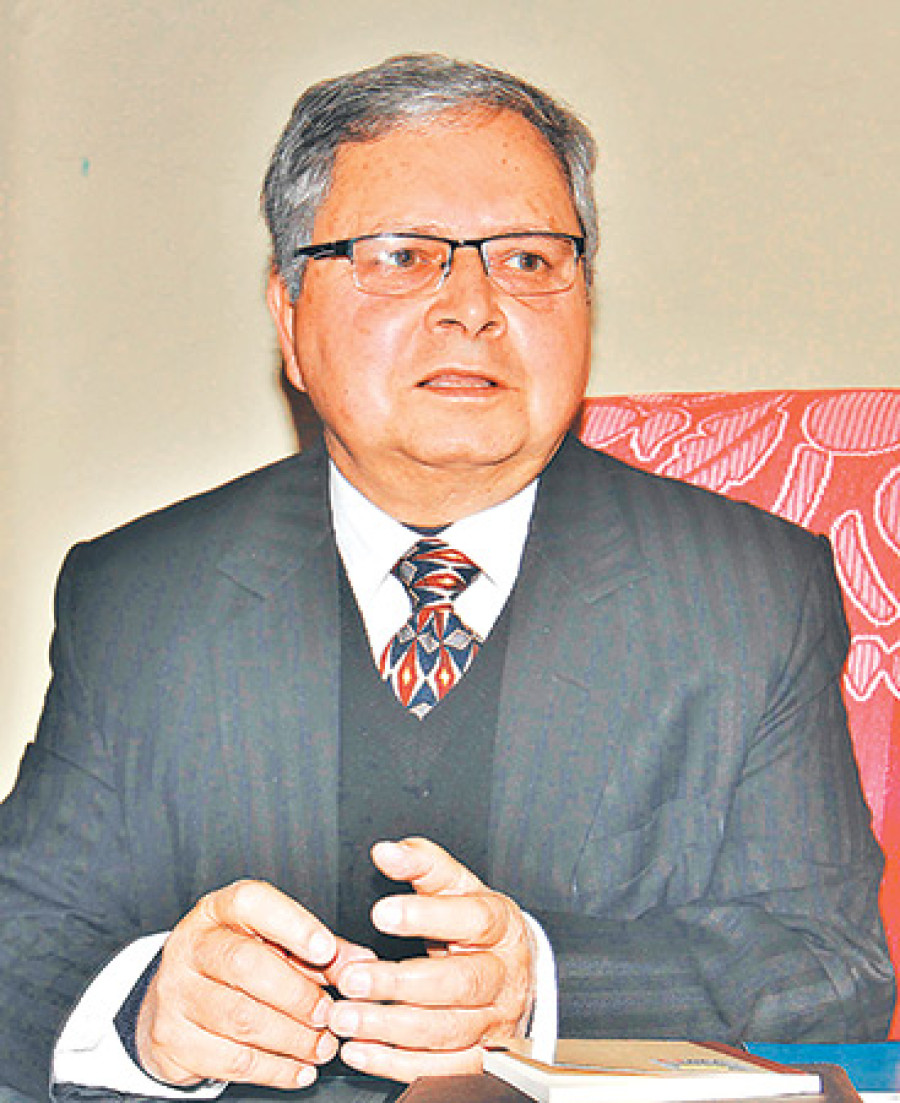Miscellaneous
Rights chair slams delay in war-era cases probe
National Human Rights Commission Chairman Anup Raj Sharma has slammed the delays in the investigation process of war-era cases of human rights violation,
National Human Rights Commission Chairman Anup Raj Sharma has slammed the delays in the investigation process of war-era cases of human rights violation, warning that international organisations and instruments could be attracted to Nepal’s case if there was no prompt and widely agreeable closure to the crimes committed during the Maoist insurgency.
At a programme organised in the Capital on Monday, Sharma said everyone should be concerned about not creating a situation in which victims are compelled to seek justice “beyond the border”.
He was referring to the situation in which the Truth and Reconciliation Commission (TRC) and the Commission of Inquiry on Enforced Disappeared Persons, formed to probe insurgency-era cases of human rights violation, have been unable to look into more than 60,000 cases registered by conflict victims in the three years since their establishment mainly due to a lack of resources and “non-cooperation” from the political parties. A Cabinet meeting on Monday extended the terms of the two transitional justice bodies by another year.
TRC Chairman Surya Kiran Gurung had also warned recently that war crimes, which have universal jurisdiction, could attract global attention if Nepal failed to provide justice to victims.
Nepal Army Colonel Kumar Lama was arrested in January 2013 while on leave in the United Kingdom from his posting as a United Nations peacekeeper in South Sudan. The charges were related to two separate incidents that allegedly occurred between April and May 2005 at the NA’s Gorusinghe barracks in Kapilvastu. He returned to Nepal in September 2016 after a UK court cleared him of the charges.
Since its formation in February 2015, the CIEDP has begun detailed investigation into hardly 207 cases among the 3,093 registered with it. The TRC, which received 60,298 cases, has completed preliminary probe into 827 cases only. NHRC Chair Sharma was of the view that the international community was closely watching the sluggish investigation process caused also by a lack of necessary laws. Speaking at a programme organised by the rights watchdog on Monday to make public its stand on the transitional justice process, Sharma said all the concerned stakeholders should work responsibly to make sure that the transitional justice process does not fail.
The Acts governing the two bodies were amended through an ordinance, opening the door for extending their term by one year starting Saturday. Both the commissions had written to the government seeking tenure extension. With the Cabinet decision, the TRC and the CIEDP have got one more year to complete the investigation process.
“Legal provisions are required to ensure that the investigation process follows international standards,” said Sharma. “Only the cases permitted by the existing criminal laws should be taken in for reconciliation subject to victims’ consent.”
The NHRC presented its 11-point view on transitional justice. One of them is objection to amnesty in cases of serious human rights violations.
The rights watchdog also calls for laws criminalising enforced disappearance and torture. The laws governing the TRC and the CIEDP do not clearly define serious crimes against humanity. The Supreme Court directed the government in 2015 to enlist unlawful killings, rape, torture and enforced disappearance as serious cases of human rights violation by amending the laws.
However, no government has paid serious attention to implementing the court’s order. The international community also does not own up the existing transitional justice process in the lack of proper laws that adhere to international standards of investigation into war-era crimes. The commission also asks the government to ensure proper reparation for victims. It appealed to the provincial and local governments to prioritise victims of human rights violation for employment.




 9.7°C Kathmandu
9.7°C Kathmandu









